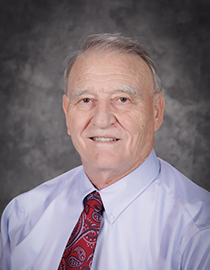 Dr. Kyle T. Alfriend, professor in the Department of Aerospace Engineering at Texas A&M University, has been selected to receive the 2016 Texas A&M University Association of Former Students Distinguished Achievement Award for research.
Dr. Kyle T. Alfriend, professor in the Department of Aerospace Engineering at Texas A&M University, has been selected to receive the 2016 Texas A&M University Association of Former Students Distinguished Achievement Award for research.
Given since 1995, this award recognizes those individuals whose research efforts have been particularly significant and outstanding and are so recognized locally, nationally and internationally. The results of these research efforts should have added substantially to the basic body of knowledge, contributed to the improvement of the quality of life and/or encouraged additional research.
For more than 40 years, Alfriend has been making key contributions to the understanding of the flight mechanics and control of space vehicles. His career includes an unusually rich mix of experience in academia, industry and government. His innovations appear prominently in subjects as diverse as analytical celestial mechanics; satellite formation flying; attitude dynamics and control; surveillance of space; probabilistic problems in astrodynamics including probability-of-collision formulations used by NASA to ensure safety of manned space flight; and application of space systems to intelligence, surveillance and reconnaissance. It is remarkable that papers from every phase of his career continue to be cited regularly at conferences and in journals.
In addition to his academic and industrial posts, Alfriend has served as editor-in-chief of the Journal of Guidance, Control and Dynamics, as editor-in-chief of the Journal of the Astronautical Sciences and as associate editor of the International Journal of Celestial Mechanics and Dynamical Astronomy. His many high honors include election to the National Academy of Engineering, election to the International Academy of Astronautics and citation with the Navy Meritorious Civilian Service Award. He is an Honorary Fellow of the AIAA and a Fellow the AAS and has received both the Mechanics and Control of Flight Award and the Dirk Brouwer Award from these societies. In 2005, he received the AAAS International Scientific Cooperation Award for his decade-long efforts to organize the US/Russian Space Surveillance Workshop series. He continues today as one of the two principal American organizers of this unique contribution to international understanding.